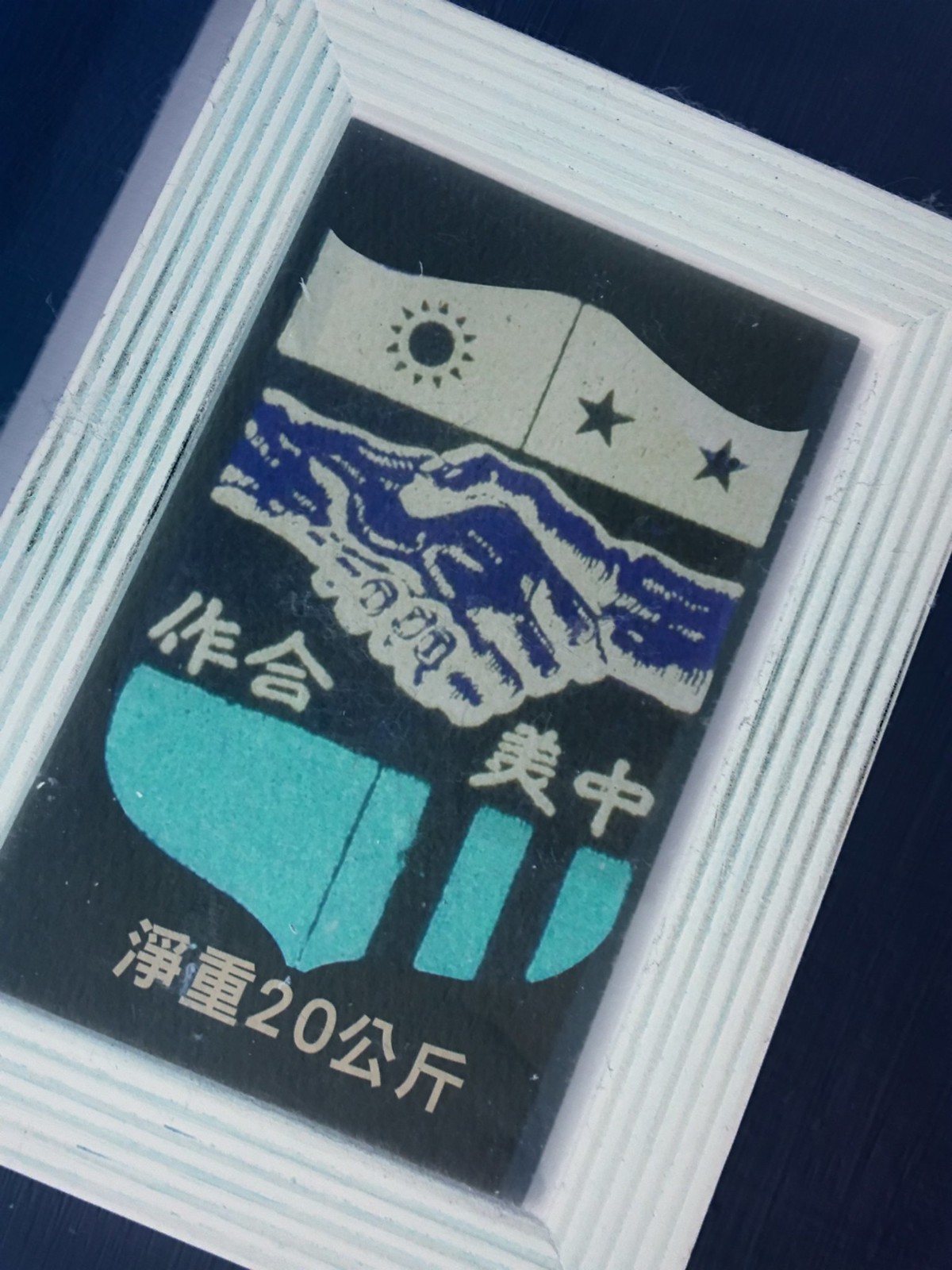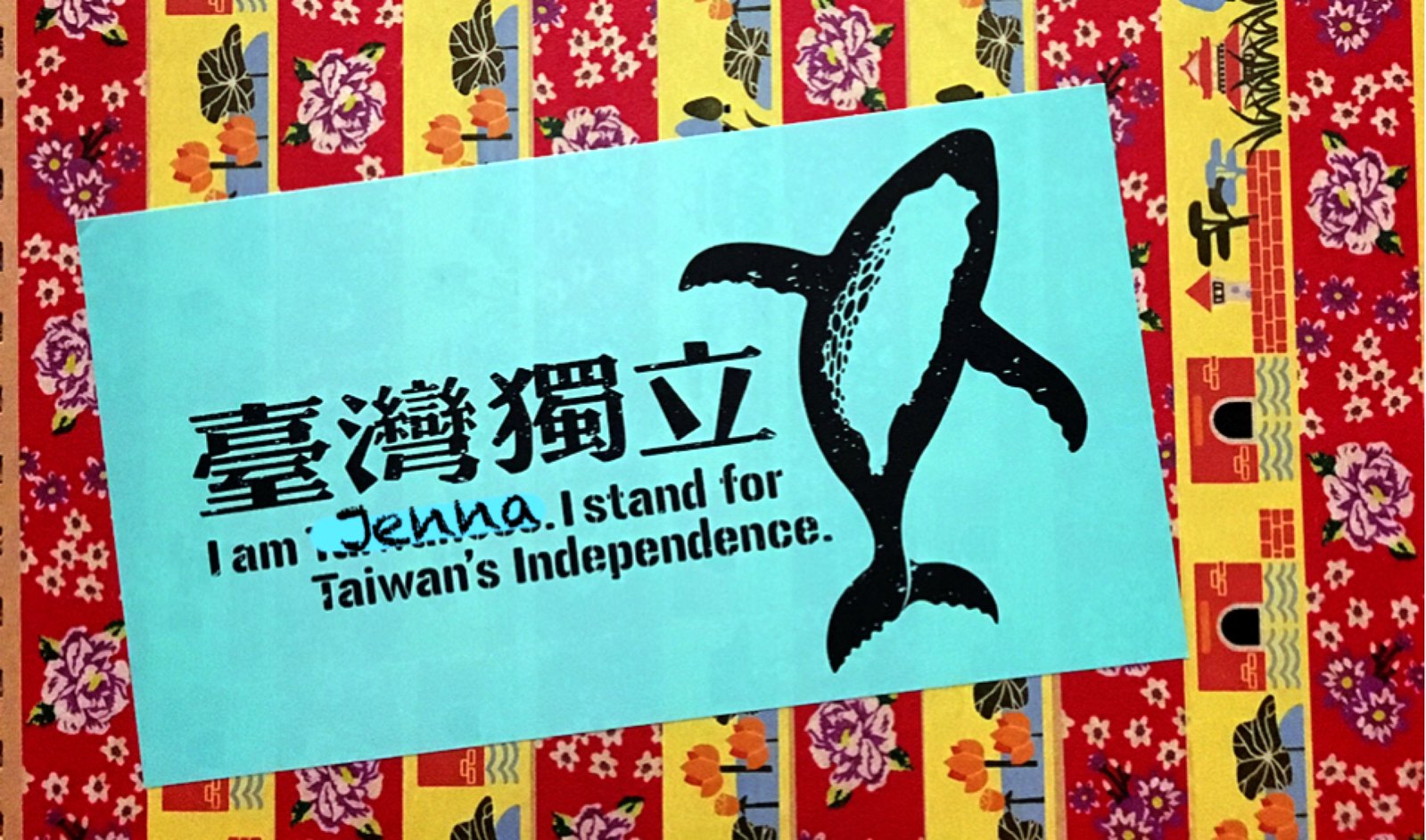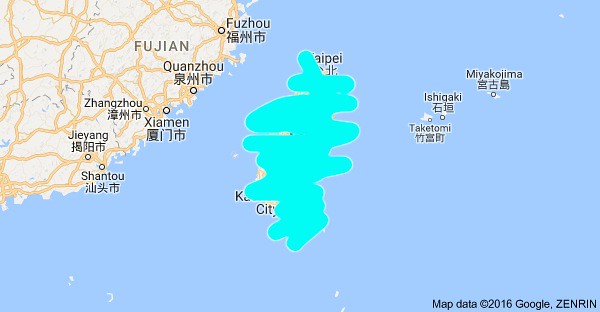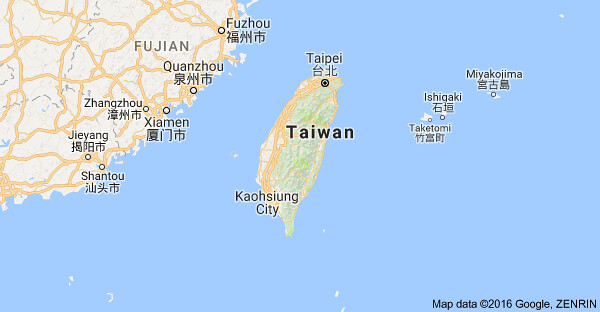No, not this. This is actually pretty cool -- it came from here -- and I'm in favor. No, no, the 2024 National Day logo looks exactly like a design for the Republic of China, not Taiwan. It's also an aesthetic monstrosity:
IT UGLY.
If you immediately clocked this as a KMT "Chinese identity" throwback, you're absolutely right. Although I did not actively know that the design committee is organized by the Legislative Yuan and chaired by the speaker, I subconsciously inferred it from this absolute blight on the eyeballs. The legislature is currently controlled by the KMT, so even though the DPP is the "ruling party", this looks like something your crotchety grandpa who shouts that you call yourself Taiwanese because "those 太綠班 brainwashed you kids" would wear on a t-shirt he got for free and wore for the next 17 years.
Maybe it's the subliminal messaging from the giant "H" in the center, that some have already compared to the old Han Kuo-yu bomber jackets.
Maybe it's the return to the ROC-flag inspired blue and red, or the plum blossom that just doesn't seem to be sitting quite right in the center: I can't quite pinpoint why it looks wrong, but I'll offer a few thoughts on that below. Maybe it's the failure to mention Taiwan in Mandarin, referring to it only in English.
Just kidding -- it's all of these things. And yes, there's been an obvious design shift based on who runs the committee:
Maybe it's the subliminal messaging from the giant "H" in the center, that some have already compared to the old Han Kuo-yu bomber jackets.
Maybe it's the return to the ROC-flag inspired blue and red, or the plum blossom that just doesn't seem to be sitting quite right in the center: I can't quite pinpoint why it looks wrong, but I'll offer a few thoughts on that below. Maybe it's the failure to mention Taiwan in Mandarin, referring to it only in English.
Just kidding -- it's all of these things. And yes, there's been an obvious design shift based on who runs the committee:
Seriously, it screams "a government committee designed this", which is exactly what happened. As a commenter below pointed out, it's got big Iron Cross energy, though that's probably unintentional. It's giving "we got super fucked up and watched old Practical Audi-Visual Chinese videos all night". It's giving "Taipei is the capital of Chinese Taipei". It's giving "I fed an AI a steady diet of TVBS for six months and then asked it to design a logo."
Actually, while I didn't feed an AI months of TVBS (not even AI deserves that), I did ask it to generate some designs based on the typical parameters for these logos. Perhaps my prompt engineering could be improved as it kept defaulting to circles, not double tens, but here are a few that made me chortle:
AI seems to show a similar level of commitment to the CCP as the KMT does, but remember, AI isn't sentient. Anyway, I think that thicc-bottomed sun in the bottom left is actually a better logo than the one the government actually unveiled.
As with the KMT, the AI generator likes big suns and it cannot lie:
Also a fan of the retro zero:
Artificial intelligence creates even simple characters like 十 about as well as a tattoo artist on one of the seedier Jersey Shore boardwalks who misread the dose on his edible. And yet, it still understands the KMT's secret heart:
...although I'm not sure why it decided that Double Ten needed to imply beeeewwwwbs.
And this one just looks kind of like a stylized butthole, heh heh:
I'll throw in a few more at the end for your amusement.
My favorite part of this isn't the comment about the giant H or that it looks like the Super Mario warp pipes, it's the defensive commentary from the KMT on a design so many people seem to hate.
I mean, as a Facebook friend commented, beauty is in the eye of the beholder, and perhaps Luftwaffe officers would appreciate the aesthetic. I can think of some dead KMTers with close family ties to the early regime who would love it. But, you know, probably unintentional, right?
My favorite part of this isn't the comment about the giant H or that it looks like the Super Mario warp pipes, it's the defensive commentary from the KMT on a design so many people seem to hate.
I mean, as a Facebook friend commented, beauty is in the eye of the beholder, and perhaps Luftwaffe officers would appreciate the aesthetic. I can think of some dead KMTers with close family ties to the early regime who would love it. But, you know, probably unintentional, right?
Legislative Speaker (barf) Han Kuo-yu called it a "beautiful work" that "carries Taiwan's deepest emotions" -- which is true, if you assume only KMT settlers and their offspring over the age of 60 have emotions.
I also enjoyed this quote:
He's not wrong exactly, but to see that it imitates the flag, you'd only have to look "closely" if you had glaucoma.
Wu also said that the theme of 2024's National Day celebrations was "happy birthday to the Republic of China". Okay, but I thought that was the theme every year?
Wu is an absolute comedy machine, by the way. He tied the plum blossom -- a symbol of the KMT, which ran a brutal, deadly suppression campaign for decades under Martial Law -- to "respect for history", and said the blue and red symbolize "different opinions and voices coming together". Sorry dude, but the Republic of China flag that the KMT imposed on Taiwan, which is obvious in the design, isn't known historically for "different opinions and voices". It's known for one voice -- the dictator's -- coming together with his minions and cronies to use the military to disappear, torture and slaughter dissidents.
According to several sources, the design was created by a team of "passionate young designers". They apparently prefer anonymity, which should surprise no-one. As is common in Taiwan, the committee trotted out "it was designed by a team" to avoid admitting that anyone in particular wasted their parents' money on design school.
Also, I gotta say, "young designers" created this thing? At some point in my prompt journey I told the AI to make the designs "more retro" and it came up with some ideas that, while very weird, at least looked retro in a cool way. This is the sort of logo you'd see on a mug in your parents' cupboard that you'd immediately donate it to charity. Retro, but it's not a compliment.
Or maybe these designers are indeed "young", if measured on a KMT timescale. You know, the same scale on which Taipei mayor Chiang Wan-an is young (he's 45).
Interior Ministry Deputy Minister Wu Tang-an (吳堂安) complimented netizens’ rich imaginations and added that if you look closely, the colors line up with Taiwan’s flag.
Wu also said that the theme of 2024's National Day celebrations was "happy birthday to the Republic of China". Okay, but I thought that was the theme every year?
Wu is an absolute comedy machine, by the way. He tied the plum blossom -- a symbol of the KMT, which ran a brutal, deadly suppression campaign for decades under Martial Law -- to "respect for history", and said the blue and red symbolize "different opinions and voices coming together". Sorry dude, but the Republic of China flag that the KMT imposed on Taiwan, which is obvious in the design, isn't known historically for "different opinions and voices". It's known for one voice -- the dictator's -- coming together with his minions and cronies to use the military to disappear, torture and slaughter dissidents.
According to several sources, the design was created by a team of "passionate young designers". They apparently prefer anonymity, which should surprise no-one. As is common in Taiwan, the committee trotted out "it was designed by a team" to avoid admitting that anyone in particular wasted their parents' money on design school.
Also, I gotta say, "young designers" created this thing? At some point in my prompt journey I told the AI to make the designs "more retro" and it came up with some ideas that, while very weird, at least looked retro in a cool way. This is the sort of logo you'd see on a mug in your parents' cupboard that you'd immediately donate it to charity. Retro, but it's not a compliment.
Or maybe these designers are indeed "young", if measured on a KMT timescale. You know, the same scale on which Taipei mayor Chiang Wan-an is young (he's 45).
The thing is, my dislike of the design isn't just because the KMT sucks, the flag is an ugly reminder of a dead dictatorship, and contemporary, democratic Taiwan deserves better than to be forced to swallow a party logo as a national symbol.
It's also just a bad design.
I keep looking at that plum blossom, wondering what in the absolute hell is wrong with it. Perhaps the two petals on the bottom and one on top (which is standard) make it look bottom-heavy when it's placed in the middle of that long, slim line. The blue field taken from the ROC flag cutting into the H makes it look off-center, even though I don't think it is. The design lacks balance: this might be the only time I'll ever say that there's too much going on in the left and center, and not enough on the right.
The whole thing also looks a bit like it's being crushed? Stretching it out on the sides but keepin' it stumpy on the vertical doesn't evoke progress, innovation or the future. It gives "we're trying to expand our influence but are being crushed by the weight of history" -- which I suppose is an apt metaphor for the Republic of China.
Long 'n Stumpy here also has a certain...je ne sais quoi. Except, oh wait, je very much sais quoi. You could call it Iron Cross, but I'm gonna call call it "I want to take a picture of my junk, but stretch it a bit so it looks normal and less like a chode."
I'm not sure if the designers wanted the 十十 to look slimmer, or if they were trying to evoke stately columns or...what, but the edges read "serif" and if there's anything that just doesn't work on Chinese characters, even the simplest ones, it's freakin' serifs.
Personally, although I'm a Century Gothic acolyte, I like a serif in some cases. I enjoy a nice Garamond or Cochin from time to time. I can ride with Baskerville, and if you're looking for something new, Self Modern isn't bad. I don't think they're hopelessly old-fashioned per se.
But they don't scream "modern and clean graphics" as Wu Tang-an suggests. I see defensive borders, pushing anything new or foreign from the center. Or maybe they're closing ranks, keeping the riff-raff out. A serif is okay in some circumstances, but these absolutely convey the message that the KMT wants you damn kids to get off their lawn.
That's not even getting into the clunkiness of the design language. It does not evoke. It does not reference. There is no subtle metaphor. It whacks you over the head with a dollar-store baseball bat. It's the difference between the person who references their love of retro sci-fi with hints of chrome and black in their decor, versus the one who hangs a papier-mâché UFO in their living room.
It does not hint at the ROC flag -- there's a literal ROC flag in the motto! Y'know, because the theme is "happy birthday to the Republic of China", which is a totally fresh and innovative theme to have! It's not symbolic of the KMT's Republic of China vision so much as a simple product of it. And I do mean "simple" in the cruelest possible way.
Something about the size, thickness and spacing of the English, compared to the relatively lighter Mandarin is just off. It's too long and fat, which is yet another thing I never thought I'd say. I know that slogans which aren't necessarily sentences sometimes have periods for emphasis, but something about this period feels wrong. Perhaps the phrase is so long that one's brain is tricked into thinking it could be a sentence, but it's not one.
I didn't always love the Double Ten designs created by DPP-led legislative committees. But at the very least they were contemporary. They weren't afraid to look at colors beyond red, white and blue. You could tell someone under the age of 70 had a hand in designing them. With the possible exceptions of 2019 and 2023, if someone gave you a mug featuring one, you might actually keep it.
That's all I really have to say, so enjoy some more trippy AI designs for "Republic of China National Day". While I like the terrifying birds, the Alien Body Horror Sphere is also rather eye-catching.

It's also just a bad design.
I keep looking at that plum blossom, wondering what in the absolute hell is wrong with it. Perhaps the two petals on the bottom and one on top (which is standard) make it look bottom-heavy when it's placed in the middle of that long, slim line. The blue field taken from the ROC flag cutting into the H makes it look off-center, even though I don't think it is. The design lacks balance: this might be the only time I'll ever say that there's too much going on in the left and center, and not enough on the right.
The whole thing also looks a bit like it's being crushed? Stretching it out on the sides but keepin' it stumpy on the vertical doesn't evoke progress, innovation or the future. It gives "we're trying to expand our influence but are being crushed by the weight of history" -- which I suppose is an apt metaphor for the Republic of China.
Long 'n Stumpy here also has a certain...je ne sais quoi. Except, oh wait, je very much sais quoi. You could call it Iron Cross, but I'm gonna call call it "I want to take a picture of my junk, but stretch it a bit so it looks normal and less like a chode."
I'm not sure if the designers wanted the 十十 to look slimmer, or if they were trying to evoke stately columns or...what, but the edges read "serif" and if there's anything that just doesn't work on Chinese characters, even the simplest ones, it's freakin' serifs.
Personally, although I'm a Century Gothic acolyte, I like a serif in some cases. I enjoy a nice Garamond or Cochin from time to time. I can ride with Baskerville, and if you're looking for something new, Self Modern isn't bad. I don't think they're hopelessly old-fashioned per se.
But they don't scream "modern and clean graphics" as Wu Tang-an suggests. I see defensive borders, pushing anything new or foreign from the center. Or maybe they're closing ranks, keeping the riff-raff out. A serif is okay in some circumstances, but these absolutely convey the message that the KMT wants you damn kids to get off their lawn.
That's not even getting into the clunkiness of the design language. It does not evoke. It does not reference. There is no subtle metaphor. It whacks you over the head with a dollar-store baseball bat. It's the difference between the person who references their love of retro sci-fi with hints of chrome and black in their decor, versus the one who hangs a papier-mâché UFO in their living room.
It does not hint at the ROC flag -- there's a literal ROC flag in the motto! Y'know, because the theme is "happy birthday to the Republic of China", which is a totally fresh and innovative theme to have! It's not symbolic of the KMT's Republic of China vision so much as a simple product of it. And I do mean "simple" in the cruelest possible way.
Something about the size, thickness and spacing of the English, compared to the relatively lighter Mandarin is just off. It's too long and fat, which is yet another thing I never thought I'd say. I know that slogans which aren't necessarily sentences sometimes have periods for emphasis, but something about this period feels wrong. Perhaps the phrase is so long that one's brain is tricked into thinking it could be a sentence, but it's not one.
I didn't always love the Double Ten designs created by DPP-led legislative committees. But at the very least they were contemporary. They weren't afraid to look at colors beyond red, white and blue. You could tell someone under the age of 70 had a hand in designing them. With the possible exceptions of 2019 and 2023, if someone gave you a mug featuring one, you might actually keep it.
That's all I really have to say, so enjoy some more trippy AI designs for "Republic of China National Day". While I like the terrifying birds, the Alien Body Horror Sphere is also rather eye-catching.


















